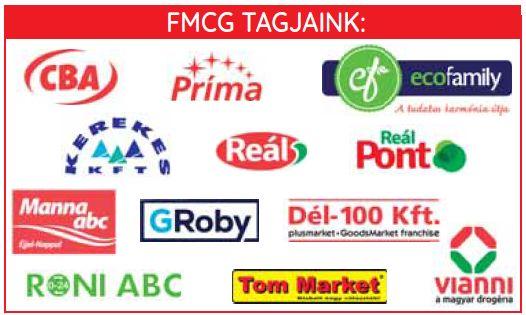Katalin Neubauer: “Continuity and active market presence are essential for successful retail work”
In 2023 the biggest challenge for the Hungarian retail sector was high inflation, which significantly reduced purchasing power, opines Katalin Neubauer, secretary general of the Hungarian National Trade Association (MNKSZ).

This article is available for reading in Trade magazin 2024/6-7
![]() – How do you see the situation of the retail sector after last year? What were the notable changes in the challenges or strengths?
– How do you see the situation of the retail sector after last year? What were the notable changes in the challenges or strengths?

Katalin Neubauer
secretary general
MNKSZ
– Last year brought great challenges in the daily lives of domestic retailers, with the difficulties first and foremost caused by a significant drop in sales volumes, in both the food and non-food categories. Inflation peaked at 25.7% in January 2023 and even if it started decrease moderately after that, the rate of money depreciation remained above 20% for months. The painful but obvious result was a drop in purchasing power.
![]() – What recent changes, regulatory or otherwise, have affected MNKSZ members?
– What recent changes, regulatory or otherwise, have affected MNKSZ members?
– The Consumer Protection Act has undergone significant changes, with amendments to the functioning of conciliation bodies, their powers, and to the warranty and guarantee rules. As regards food retailers, the government’s price cap scheme ended in the middle of last year, but it was replaced by mandatory price discounts and the price monitoring system. The introduction of the deposit return scheme (DRS) for drink containers has added to the list of challenges food retailers had to face.
![]() – How has the membership structure changed over the past year and how have you strengthened the cohesion and cooperation within the membership?
– How has the membership structure changed over the past year and how have you strengthened the cohesion and cooperation within the membership?
– 2023 has been an excellent year for MNKSZ and we are optimistic about 2024. Kerekes Kft., Dél-100 Kft. and the GRoby chain have joined our association. The new members have brought a new dynamic to MNKSZ. We have strengthened cohesion by introducing our key members to the ministry responsible for retail trade. These types of meetings will deepen the relationship between Hungarian commercial enterprises and the ministries.
![]() – What have been your biggest achievements?
– What have been your biggest achievements?
– Prior to the introduction of the DRS system, we played a proactive role in the process of preparing the related legislation and the operation of the system. It was a big success that retailers are allowed to sell their products in the old packaging within the grace period or that retailers get reverse vending machines for free.

![]() – What legislative changes and market trends should retailers be prepared for in the next period?
– What legislative changes and market trends should retailers be prepared for in the next period?
– Legislative changes are mostly fast-tracked nowadays, which doesn’t make our situation any easier. MNKSZ tries to consult regularly with the ministries that initiate the changes. In addition to legislative compliance, it would be important to have adequate resources for monitoring and tracking changes in retail trends and consumer behaviour, because this is the only thing that can really drive us forward. The best retailers are always ready to work with market researchers and futurologists, in order to respond to market changes with new strategies.
![]() – What specific areas and objectives MNKSZ will be working on in the near future to support its members?
– What specific areas and objectives MNKSZ will be working on in the near future to support its members?
– Our plans include strengthening the cooperation between member companies and encouraging them to become actively involved in the life of their local communities. We will also pay attention to communicate the importance of building a good reputation through social engagement. //
Related news
Inflation has dropped significantly, a cycle of interest rate cuts may begin, while gold soars
🎧 Hallgasd a cikket: Lejátszás Szünet Folytatás Leállítás Nyelv: Auto…
Read more >January inflation data paves the way for February interest rate cut
🎧 Hallgasd a cikket: Lejátszás Szünet Folytatás Leállítás Nyelv: Auto…
Read more >Related news
State compensation for the victims of Bászna Gabona Zrt. has been completed
🎧 Hallgasd a cikket: Lejátszás Szünet Folytatás Leállítás Nyelv: Auto…
Read more >József Viski: Adaptation and competitiveness are key for the horticultural sector
🎧 Hallgasd a cikket: Lejátszás Szünet Folytatás Leállítás Nyelv: Auto…
Read more >Festival buzz at the 60th anniversary EuroShop trade fair
🎧 Hallgasd a cikket: Lejátszás Szünet Folytatás Leállítás Nyelv: Auto…
Read more >








